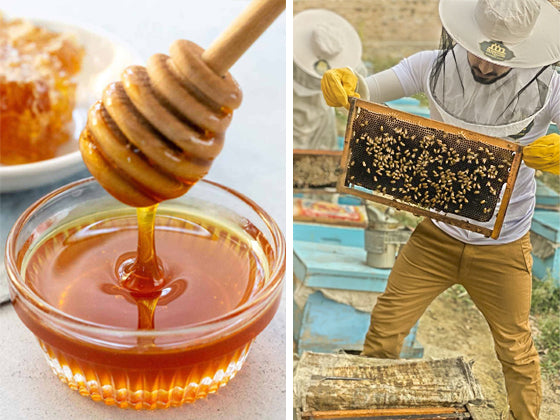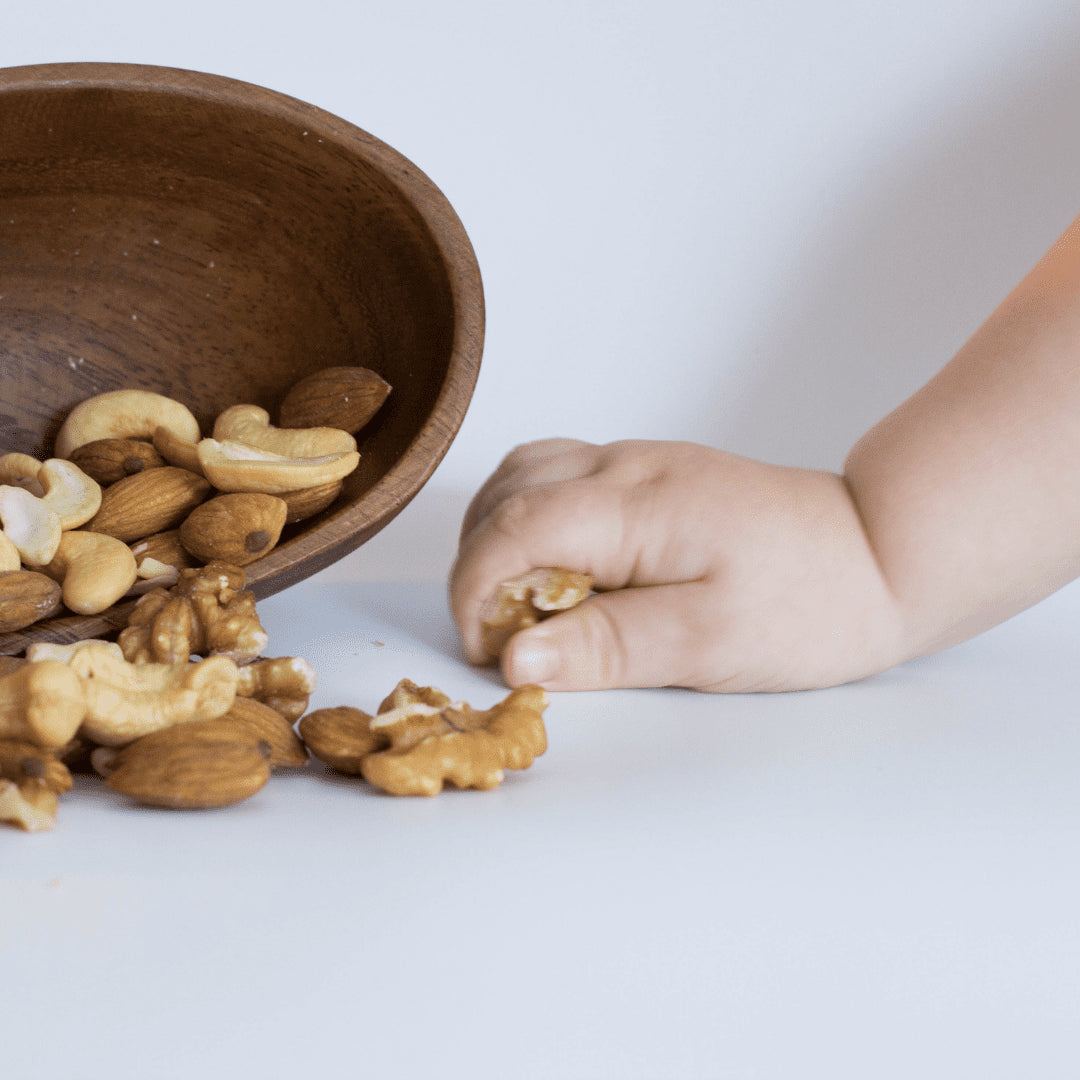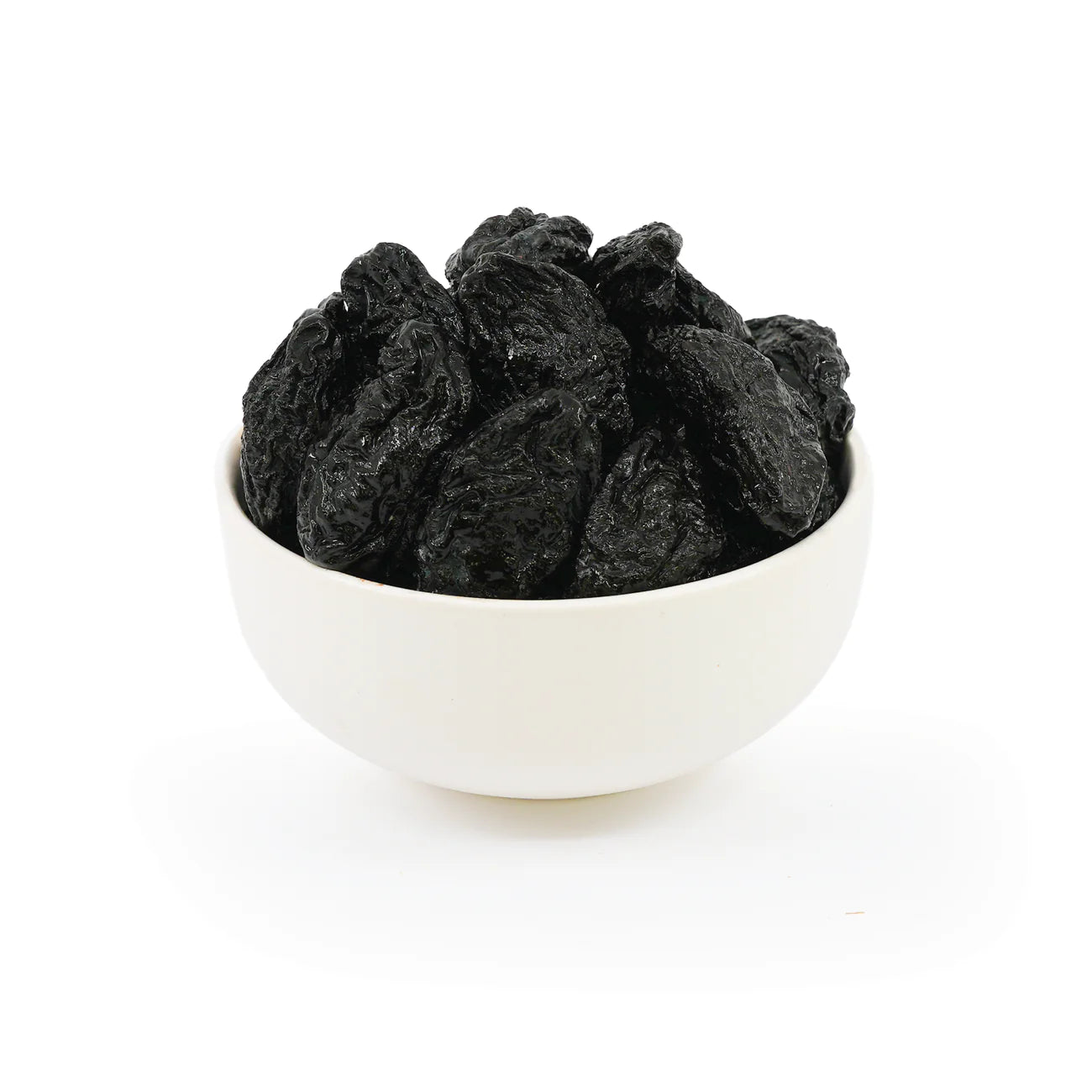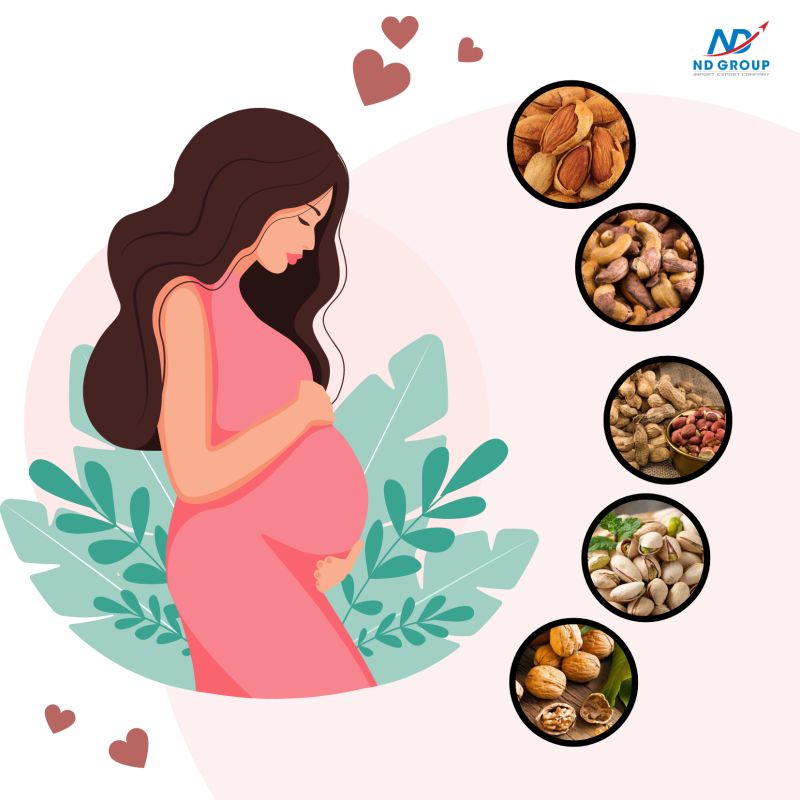Are Nuts Safe for young Kids ?
Whole Nuts: Choking Hazard for Young Children
- Choking Risk: Whole nuts, including peanuts, almonds, walnuts, and others, can be a choking hazard for young children. Their small airways may not handle these hard and compact foods safely.
- Precaution: Avoid giving whole nuts to children under the age of 5. Instead, offer nut butters or finely chopped nuts.

Peanuts: Allergy Concerns
- Allergy Risk: Peanuts are one of the most common allergenic foods, and peanut allergies can be severe. Allergic reactions can range from mild symptoms to life-threatening anaphylaxis.
- Precaution: Introduce peanuts cautiously and at an appropriate age, following your healthcare provider's guidance. Be vigilant for any signs of allergies, such as hives, swelling, or breathing difficulties.
Tree Nuts: Allergies Vary
- Allergy Risk: Tree nuts like almonds, walnuts, cashews, and others can also trigger allergies, although they are less common than peanut allergies.
- Precaution: If there is a family history of nut allergies or if your child has shown allergic reactions to other foods, consult with a healthcare provider before introducing tree nuts into their diet. Watch for any allergic symptoms.
Macadamia Nuts: High Fat Content
- Fat Content: Macadamia nuts have a very high fat content, which may be hard for young children to digest. Consuming excessive fats can lead to digestive issues.
- Precaution: Limit the consumption of macadamia nuts for young children and monitor for any signs of digestive discomfort.
Salted and Flavored Nuts: Sodium Concerns
- Sodium Content: Salted or flavored nuts often contain high levels of sodium, which can be harmful to a child's developing kidneys and overall health.
- Precaution: Choose unsalted or lightly seasoned nuts for children and read product labels carefully to check for added sodium.

Conclusion:
While nuts are packed with nutrients, not all varieties are suitable for children. Due to choking hazards, allergies, and high fat or sodium content, it's essential for parents and caregivers to exercise caution when introducing nuts into a child's diet. Always consult with a pediatrician or healthcare provider for guidance on when and how to introduce nuts safely to your child's nutrition.





